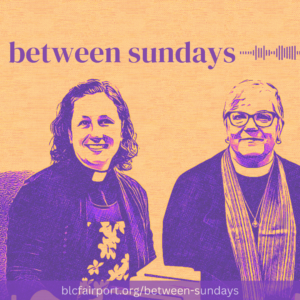Between Sundays for Week of June 30, 2025
What is your response when you hear “No”?
When Jesus hears “No” in Luke 9:51-62, he hears it as a complete sentence. Jesus sends messengers ahead of his traveling party into a Samaritan village to make ready for the group. But the village is not interested in hosting Jesus. Their “No” is clear.
Given the ancient enmity between Jesus and those who worshiped like him, and those from Samaritan lands, it’s not a complete surprise that the village says “No.” Given this long history, we might wonder why Jesus even bothered to ask, or to think that there was a possibility that the village would extend a welcome.
Except that Jesus knew enough to be surprised by people! One community’s “No,” might be another community’s “Yes.” Jesus understood there is no place where God is not. Stories of Jesus often reveal that those least expected to be open to the good news that God’s reign is near are open and are already living that good news in their own lives!
One of the ways in which Jesus shows love and embodies God’s good news in the gospels is by giving people agency – the ability to determine their “yes” or “no” – and then respecting that agency when it is voiced. This way of living is deeply connected to the freedom we receive in our baptism as described in Galatians 5:1,13-25. The apostle Paul writes:
For freedom Christ has set us free. Stand firm, therefore, and do not submit again to the yoke of slavery. … [D]o not use your freedom as an opportunity for self-indulgence, but through love become slaves to one another.
Jesus embodies this freedom by allowing himself and his disciples to submit to the will of a Samaritan village. Jesus embodies his freedom by rebuking, not the villagers, but his own followers, James and John, showing them that loving him while wishing violence and retribution on these Samaritan neighbors is not the kind of love he seeks to bring to this world! In other words, our Christian freedom calls us to receive our neighbor’s “no” as a complete sentence.
Following Jesus asks us to lay aside our ego and every self-righteous and self-indulgent impulse that drives us — even when those impulses seem innocent and good. What we gain by doing this is God’s Spirit-filled community of love made real. We gain a world where the fruits of God’s Spirit: love, joy, peace, patience, kindness, generosity, faithfulness, gentleness and self-control are alive and active collectively among those who travel with Jesus on the way!
There is no law against such Spirit-filled living.
NOTE: The Grief Support Group will NOT meet this Tuesday, July 1 and will meet next on Tuesday, July 15 at 11 AM. The Caregiver Support group will be on hiatus through the summer. Please reach out to either pastor if you need pastoral care support.
P.S. Curious about how scripture texts connect to Lutheran theology? The June 22 essay in Journey with Jesus, written by Lutheran scholar, Barbara Pitkin, features an interesting discussion of Martin Luther’s application of Paul’s writings about Christian freedom in Galatians.
P.P.S. View Sunday worship through our YouTube channel and listen to Pastor Amy’s sermon (beginning at 22:58). Links to previous worship videos on Facebook and YouTube are always available on our website.
Faith Connection at Home
VBS will be held at BLC this summer from 9am – 12pm for ages pre-K through grade 6. Our theme is Compassion Camp — What Every Living Thing Needs. There will be songs, bible storytime, crafts, games and more — and it’s FREE! If you have time during the mornings of this week, we’d love the extra helping hands to shepherd groups or at one of our stations. Registration for children can be found here and registration to volunteer can be found here.
Ponderings
Martin Luther (1483-1546) was greatly inspired by the writings of the apostle Paul, including the book of Galatians. One of Luther’s most famous writings is The Freedom of a Christian (1520), where he writes:
“From faith there flows a love and joy in the Lord. From love proceeds a joyful, willing, and free mind that serves the neighbor willingly and takes no account of gratitude or ingratitude, of praise or blame, of gain or loss. We do not serve others with an eye toward making them obligated to us. Nor do we distinguish between friends and enemies or anticipate their thankfulness or ingratitude. Rather, we freely and willingly spend ourselves and all that we have, whether we squander it on the ungrateful or give it to the deserving.”
(Trans. Mark Tranvik)



